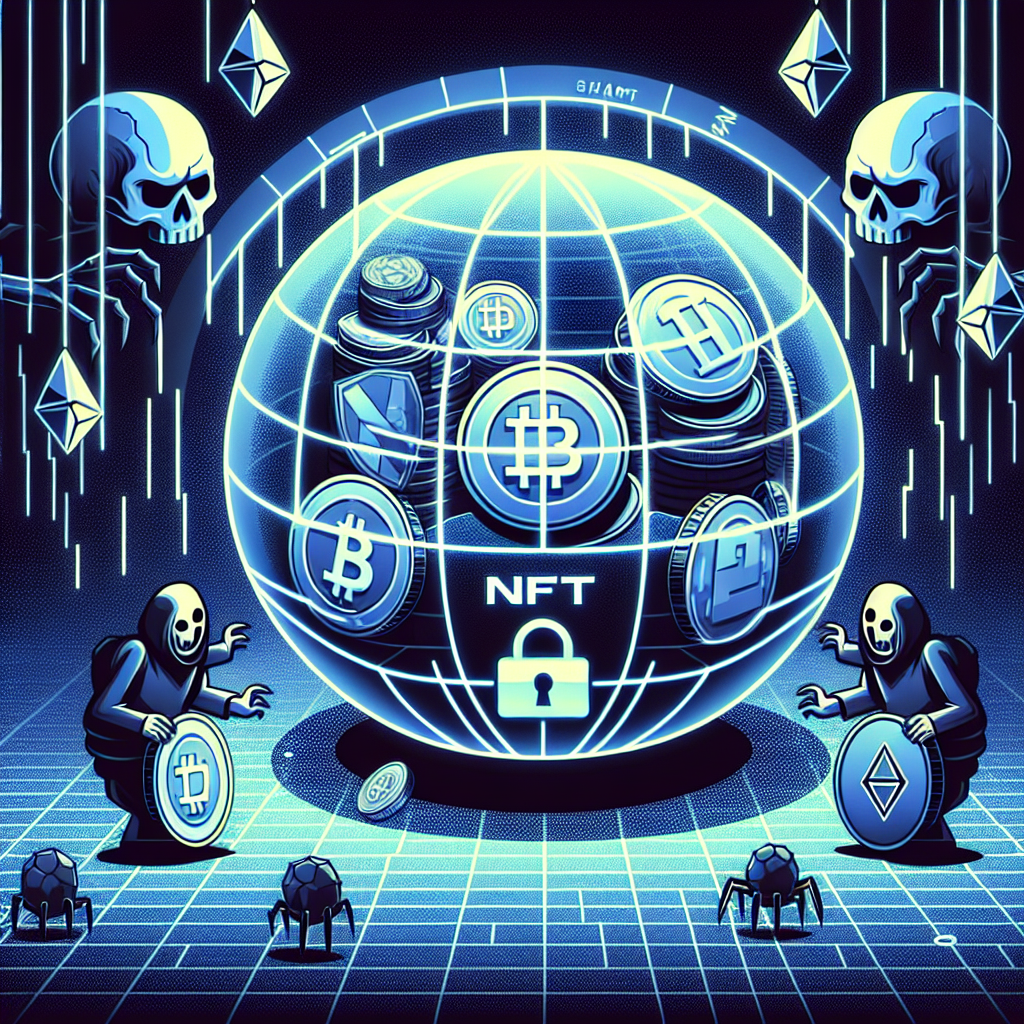Non-fungible tokens (NFTs) have revolutionized the concept of digital ownership, providing a secure way to verify ownership of various digital items such as art and virtual real estate. However, with the rise in popularity of NFTs, scammers have also found new ways to deceive both newcomers and seasoned collectors. It is crucial to be aware of common NFT scams to avoid falling victim to fraudulent schemes in the ever-evolving NFT market.
Why NFTs Are Vulnerable to Scams
No Regulation
One of the primary reasons why scams proliferate in the NFT space is the absence of centralized regulation. Unlike traditional financial markets with established rules, the NFT market operates without oversight, creating opportunities for scammers to exploit unsuspecting individuals. The decentralized nature of NFTs, while promoting freedom and innovation, also makes it easier for criminals to perpetrate fake projects, manipulate prices, and vanish with investors’ funds.
Key Takeaway:
Approach new NFT projects with caution and skepticism, as blockchain technology alone does not guarantee trustworthiness.
Rapid Growth and Hype
The rapid growth and hype surrounding the NFT market can lead to a fear of missing out (FOMO) among collectors. This FOMO can overshadow critical analysis, making individuals overlook warning signs such as anonymous founders, counterfeit websites, and exaggerated promises. Scammers take advantage of this frenzy to introduce fake collections or promote their platforms as the next big thing.
Key Takeaway:
Prioritize thorough research and due diligence, especially in a speculative and hype-driven market.
NFT Scams
Understanding common scam tactics can help protect against fraudulent activities in the NFT space. Here are some prevalent scams to be aware of:
Fake NFT Projects
Scammers create counterfeit NFT collections that mimic well-known brands or artists, deceiving buyers into purchasing worthless tokens. These fake projects can be listed on reputable marketplaces, making it challenging for buyers to distinguish between genuine and fraudulent offerings.
How to Avoid It:
- Verify the creator’s social media presence and official links.
- Look for verification badges on established marketplaces.
Rug Pulls
A rug pull occurs when project creators disappear after raising funds, leaving buyers with worthless NFTs. Scam projects often promise future features or benefits and vanish once they have amassed enough funds from token sales.
How to Avoid It:
- Research the team behind the project and verify their identities.
- Scrutinize the project’s development roadmap for feasibility and credibility.
Phishing
Phishing scams involve scammers impersonating legitimate platforms or individuals to obtain sensitive information such as login credentials or seed phrases. Unsuspecting individuals may be lured into fake websites through direct messages on platforms like Discord or Twitter.
How to Avoid It:
- Bookmark official websites to avoid clicking on suspicious links.
- Never share your seed phrase with anyone, as legitimate projects will not request this information.
Pump-and-Dump
In a pump-and-dump scheme, influencers or anonymous entities artificially inflate the price of an NFT through promotions or bulk purchases before selling off their tokens, causing the price to plummet. Unsuspecting buyers who join the hype may suffer financial losses.
How to Avoid It:
- Monitor trading volume for sudden spikes.
- Evaluate community sentiment and authenticity of project supporters.
Giveaway & Airdrop Scams
Scammers entice individuals with promises of free NFTs through fake giveaways or airdrops, leading them to connect their wallets to malicious websites. Once connected, scammers can steal funds or sensitive data from unsuspecting victims.
How to Avoid It:
- Verify the legitimacy of giveaway announcements from established sources.
- Exercise caution when connecting your wallet and avoid suspicious websites.
By staying informed about common NFT scams, recognizing red flags, and implementing best practices, individuals can safeguard their NFT investments and navigate the market with confidence. Remember to conduct thorough research, use secure wallets, verify smart contracts, and remain vigilant against potential scams. In a rapidly evolving landscape, staying informed and vigilant is key to protecting yourself in the world of NFTs.

